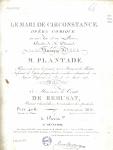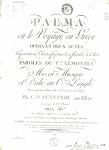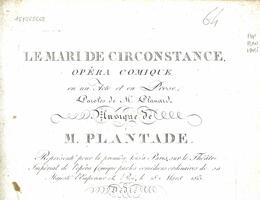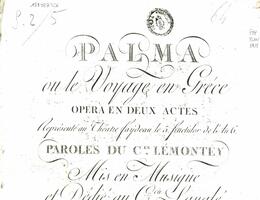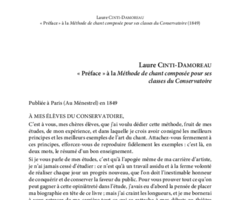Charles-Henri PLANTADE
1764 - 1839
Composer, Cellist
At the age of seven, under Louis XV, Charles-Henri Plantade entered the royal choir school at Versailles. Until the end of his life, while also enjoying a reputation as a composer and harpsichordist, he was to be regarded as a reference in France in the field of vocal music. His first romances, written for the Parisian salons, date from the end of the Ancien Régime, with his first real successes coming in the early years of the Revolution: in 1791 the score of one of his songs sold tens of thousands of copies in just a few days. He became a member of the orchestra of the Opéra-Comique and official accompanist to the tenor Pierre-Jean Garat; from 1799 he also taught singing at the Paris Conservatoire. In the early nineteenth century he became music master to Hortense de Beauharnais, Napoleon’s stepdaughter, who became Queen of the Kingdom of Holland through her marriage to Louis Bonaparte: Plantade was appointed maître de chapelleat the Dutch court from 1806 to 1810, when the kingdom was formally annexed by the French Empire. He then returned to Paris with Madame de Beauharnais and remained in her service, while also working as singing master at the Paris Opéra. At the end of the Empire period Plantade was awarded the Legion of Honour. Under the Restoration he retained his positions at the Conservatoire and the Opéra, and was appointed music master to the royal chapel (1816), a position he held until 1830 and the July Revolution, which saw the overthrow of his patron, Charles X. The operatic works he wrote for the Parisian stages were not an overwhelming success, but he earned himself a lasting reputation through the religious works he composed while working at the royal chapel, and especially his Requiem masses, written for performance at Saint-Denis, and his music for the coronation of Charles X.
Documents and archives

Testimonial, Correspondence

